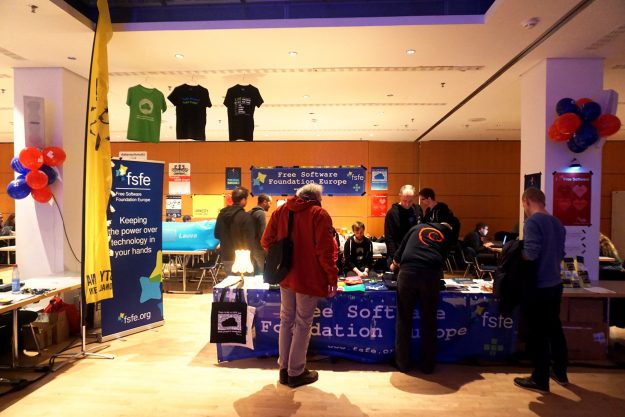The proposed legislation, which would regulate “gatekeeper” platforms in the EU, doesn’t go far enough, according to the FSFE.

In a press release issued Monday ahead of a planned preliminary vote on the EU’s proposed Digital Markets act by the Internal Market and Consumer Protection Committee, the Free Software Foundation Europe called for device neutrality to be included in the proposed law.
The German-based FSFE is a sister organization to the Free Software Foundation, although the two are legally and financially separate entities
“On the imminent voting of the Digital Markets Act – the latest EU proposal on internet platform regulation – the FSFE demands device neutrality as a fundamental element for safeguarding consumer protection in open, fair, and contestable digital markets,” the FSFE said in its statement.
“While digital devices are a ubiquitous reality in all aspects of life, control over the hardware and software running on them is increasingly being limited by internet platforms, digital services providers, hardware manufacturers, and vendors.”
The digital neutrality that FSFE is advocating should be familiar to anyone who follows FOSS or free software. It includes the right of users to delete any software that comes preinstalled on a device, the ability to side-load software from sources other than a device’s app store, and open access to platforms, regardless of the device or the operating system being used.
Digital neutrality also includes real-time data portability, so that users can switch from one device to another smoothly.
On Tuesday the DMA was approved by the committee vote and is now on it way to the EU Parliament, which is expected to vote on the matter in December. If approved by the full Parliament, negotiations with EU governments will follow, beginning in the first half of 2022.
At press time, FOSS Force has been unable to determine whether provisions for device neutrality were added to the DMA before the vote, although that seems unlikely. If not, FSFE will continue to push for its inclusion in the final legislation.
“The FSFE will continue to monitor the whole process closely and demand device neutrality to the full extent in the legislative text, so users are empowered to control technology,” it said.
The ‘Digital Markets Act’ Explained
Even without the inclusion being sought by the FSFE, the Digital Markets Act is already sweeping in scope, and if passed will likely impact tech companies in the United States, Europe, and China. The law is intended to regulate “gatekeepers”, which are defined as companies providing “core platform services” that are prone to unfair practices, a category that includes intermediation services, social networks, search engines, operating systems, online advertising services, cloud computing, and video-sharing services.
To meet the criteria to be considered a gatekeeper and fall under DMA the company must have €8 billion ($9 billion US) in annual turnover in the European Economic Area and a market capitalization of €80 billion ($90 billion US). In addition, the company would need to provide its services in at least three EU countries, with at least 45 million monthly users and more than 10 000 business users.
Google, Facebook, Amazon, Apple, Microsoft, and Booking.com all face certain regulation, and possibly companies such as the shoe retailer Zalando and China’s giant Alibaba.
Companies that don’t fall under these guidelines won’t necessarily escape regulation, however.
“These thresholds do not prevent the Commission itself from designating other companies as gatekeepers when they meet certain conditions,” the European Parliament said on Tuesday in a press release on its website.
Key provisions in the proposed law would force competing messaging apps to allow cross-platform chats, require that users must opt-in before an app or app store can became the default, and prohibit the targeting of ads to minors by some companies.
The law would also temporarily stop “killer acquisitions” that are meant to eliminate or reduce competition.
Gatekeeper companies not complying with the law face fines of “not less than 4% and not exceeding 20%” of their “total worldwide turnover in the preceding financial year,” according the the EU Parliament’s press release.
“The Digital Services Act — a parallel proposal to regulate online platforms, dealing with, among other issues, illegal content and algorithms — will be voted on by the committee at a future meeting,” the statement added.
Christine Hall has been a journalist since 1971. In 2001, she began writing a weekly consumer computer column and started covering Linux and FOSS in 2002 after making the switch to GNU/Linux. Follow her on Twitter: @BrideOfLinux







